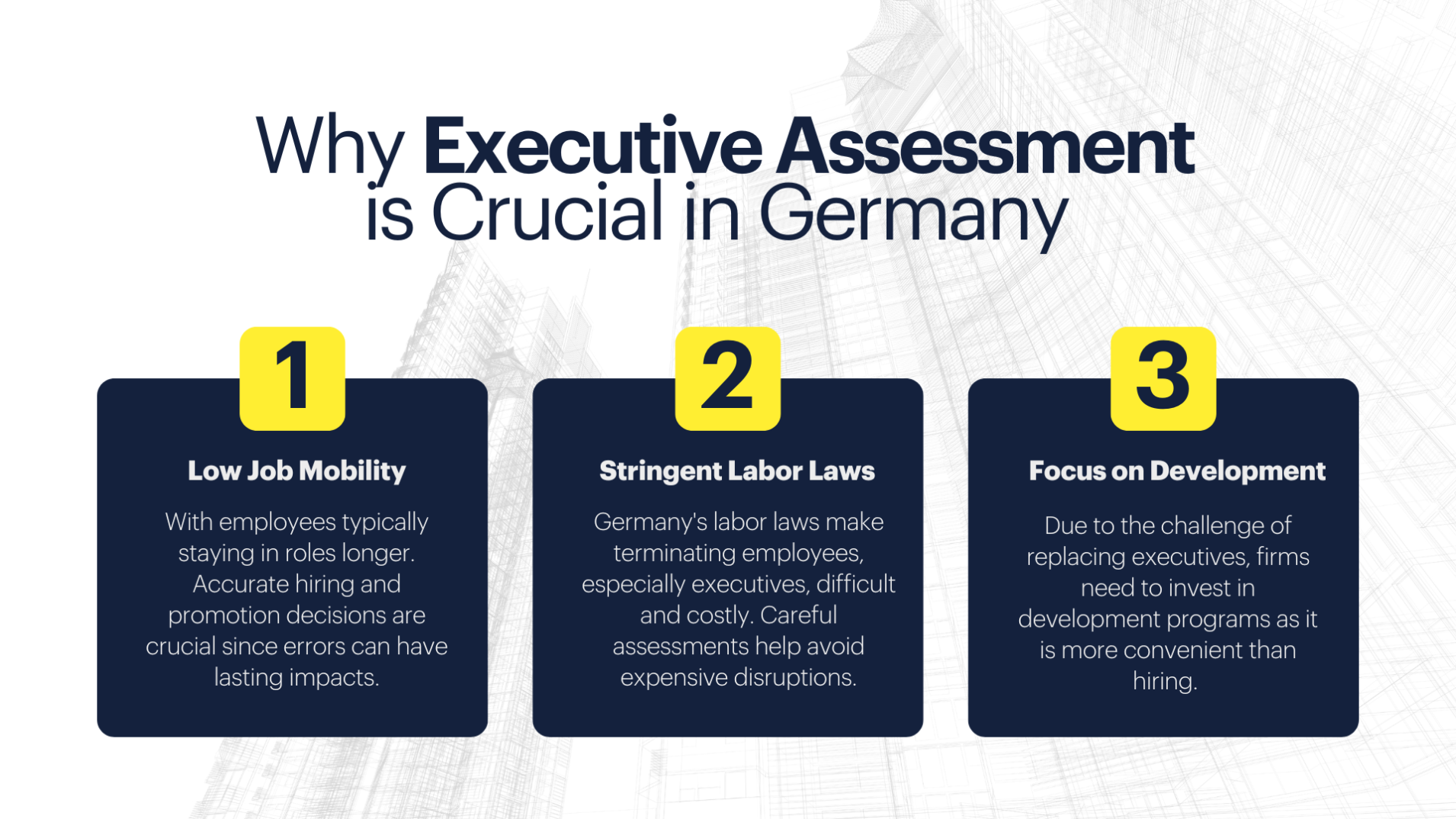There has been a great transformation in executive assessment in Germany due to the changing business environment, which requires effective leadership. The present article looks into the state of executive assessment in Germany at the moment; it discusses challenges, opportunities and gives some interesting perspectives regarding this critical factor of business success.
Current State of Executive Assessment in Germany
Executive evaluation is made through objective methods such as analysis on leadership capabilities, critical thinking and cultural fit. German firms are embracing sophisticated appraisal tools for identifying and grooming top executives owing to technological advancements and globalization.
Key Statistics:
- According to research done by the German Federal Ministry of Labor and Social Affairs, 75% of large corporations in Germany use psychometric tests as part of their executive assessment process.
- In a survey carried out by PwC, 60% of all German companies believe that executive assessments make significant contributions towards improved leadership decisions.
Why Executive Assessment is Crucial in Germany

- Low Job Mobility: Germany has relatively lower job mobility compared to other countries. In the traditional labor market scenario in Germany there are rarely job changes with employees remaining longer on their roles. Thus it becomes important for organisations to hire or promote accurately since a wrong choice may have far reaching consequences that might be difficult to correct later.
- Stringent Labor Laws: Terminating employees especially at the executive level can be difficult due to labour laws in Germany. Workers are highly protected with long periods of notification before termination and heavy severance payment packages put into place within this country. Therefore, companies must carefully carry out their executive assessments so as not to experience expensive disruptions during dismissals.
- Focus on Development and Improvement: Due to difficulty replacing executives, German firms invest heavily on development programs meant for enhancing skills among existing workforces. By providing insight into an individual’s strengths as well as areas requiring improvement, these assessments aid organizations structure exercises that are targeted to enhance leadership competences and performance.
Challenges in Executive Assessment
- Cultural Differences: One of the major challenges in executive assessment is navigating through cultural complexities. Managing Germany’s diverse workforce requires a nuanced approach that ensures fair and unbiased evaluation of employees.
- Technological Integration: While technology has brought sophisticated ways of appraising employees, its integration into the existing HR systems can be complex and expensive at times.
- Regulatory Compliance: Such requirements as strict data privacy laws including General Data Protection Regulation make it difficult to retrieve and handle sensitive information on executives being assessed.
Opportunities in Executive Assessment
- Enhanced Predictive Analytics: The use of AI and machine learning in executive assessments offers predictive insights, enabling companies to forecast leadership success and make data-driven decisions.
- Tailored Development Programs: Executive assessments provide valuable data that can be used to create personalized development plans, fostering continuous leadership growth.
- Global Talent Acquisition: Germany’s remote work trend has enabled its companies to select promising executive talent globally expanding their scope for leadership.
The future of executive assessment in Germany hinges on a seamless blending of technology with human intuition. As much as advanced appraisal tools produce invaluable information, human element remains indispensable when interpreting these findings and making all-inclusive decisions together. Consequently, businesses ought to train their personnel so that they have a capacity to use such tools efficiently while they ensure personal touch during appraisal activities.
Moreover, it is important to encourage a culture of learning and development on an ongoing basis. Executive assessments are not single events but rather continued processes that facilitate the growth of leadership skills in response to ever changing business environments.
In Germany, executive assessment is in a transforming state where technology and globalization has posed challenges as well as opportunities. German companies can identify and develop leaders effectively by adopting advanced tools while applying human-centric evaluation approaches to enable them remain competitive in the global market.








